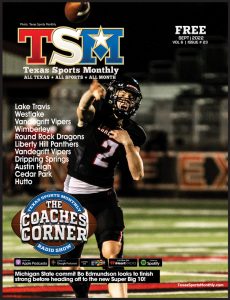All posts tagged "Baseball Recruiting"
-
High School Baseball
/ 4 years agoThe Baseball Recruiting Game
With the cost of college only going up and the value of a sports scholarship becoming ever increasingly more valued and...
-
High School Baseball
/ 4 years agoWe May Both Be Wrong
I called time out and walked out to the mound. Kid had walked the first 3 batters. My first question to...
-
Football
Any Given Friday -
HIGH SCHOOL FOOTBALL
Lake Travis vs. Cedar Ridge Scrimmage -
High School Baseball
Lake Travis to Replace Two Draft Picks Look to Make Another Round Rock Run -
HIGH SCHOOL FOOTBALL
Cedar Park Timberwolves Bite Back





